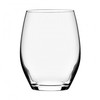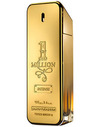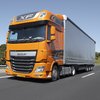First 625 words - part 2 Flashcards

copper
un/le cuivre
masculine noun
kɥivʁ
artiste

artist
masculine noun
aʁ.tist
un panneau

sign
masculine noun
pa.no
PA NO look at the SIGN it says stop
“Un signe” is used for hints and hand gestures. Other possible options are “signalisation” and “un panneau (pl. des
panneaux) de signalisation” for signs on the road or billboards.
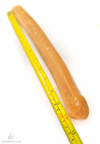
long
adjective
lɔ̃
la/une plante

plant
feminine noun
plɑ̃t
courbé

curved
adjective
kuʁ.be

ancien
adjective
ɑ̃.sjɛ̃
“Ancien” is also a translation for the word “former” when talking about something like the former president.
family
une/la famille

beau

beautiful
adjective
bo
[beau] – “Belle” is the feminine form. In formal language, we can say “ravissant/ravissante.”

une/la lampe
lamp
feminine noun
lɑ̃p

le prix
(english = price)
masculine noun
pʁi
the PRICE of the grand PRIX is fucking expensive!

le/un sol
masculine noun
sɔl
[sol] – “La terre” is used to refer to the earth, but “le sol” refers to soil and the ground on which we walk.
long
adjective
long


artist
masculine noun
aʁ.tist

hot/warm
adjective
ʃo
[chaud] – “Hot” and “warm” can both be translated as “chaud.” As “hot” is considered warmer than “warm,” we can translate it as “très
chaud” while “brûlant” = “scalding” and “tiède” = “lukewarm.”
quatre-vingts

80
card. number
ka. trə.vɛ̃

bas
bottom
adverb
ba
une/la famille

family
feminine noun
fa.mij
bas

down, low
adverb
ba
le sable

sand
masculine noun
sɑbl

un magasin
masculine noun
ma.ɡa.zɛ̃
you buy your magazine in the magasin
“Une boutique” [butik] is also a very common word for a shop as is “un commerce.”

porter
verb
pɔʁ.te

la/une plante
feminine noun
plɑ̃t
une plage

beach
feminine noun
plaʒ

un cadeau
masculine noun
ka.do
1 [cadeau] – The word “un présent” is also used in French and has the same meaning as it does in English.
clothing
le habillement

to carry
verb
porter

le argent

money
masculine noun
aʁ.ʒɑ̃
“Argent” can mean both “silver” and “money”

mort

death / dead
adjective
mɔʁ
“Décédé” = “deceased.”
I want MORE life
million
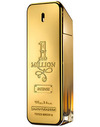
million
card number
mi.ljɔ̃

un camion
masculine noun
ka.mjɔ̃
CAMeras use Ions to take pictures of TRUCKS

courbé
(curved)
adjective
kuʁ.be

un/le verre
glass
masculine noun
vɛʁ
sand
le sable

adjective

un adjectif

soil
le/un sol

acheter

to buy
verb
a.ʃø.te
un pneu

tire
masculine noun
pnø

sand
masculine noun
sɑbl

le argent
masculine noun
aʁ.ʒɑ̃
“Argent” can mean both “silver” and “money”

zéro

zero
card. number
ze. ʁo
un poids

weight
masculine noun
pwɑ

acheter
verb
a.ʃø.te

Le paradis
masculine noun
pa.ʁa.di
[paradis] – “Le paradis” is the common word used in opposition to the “l’enfer” (cf. l’enfer et le paradis). However, the word “ciel” (sky)
is used to refer to heaven in other cases like in the prayer “Notre Père qui êtes aux Cieux” (sgl. “ciel”) = “Our Father who art in Heaven.”
Both translations are possible; it just depends on the individual situation
money or Silver
masculine noun
le argent

un/le appareil photo

camera
masculine noun
a.pa.ʁɛj fo.to
loose
adjective
ample


une pierre
feminine noun
pjɛʁ
Mr Pierre Stone
to buy
verb
acheter

il

it
pronoun
il
Because all French nouns are gendered, there’s no difference between “He is big” (Il est grand) and “It is big” (Il est grand), as long
as you’re talking about a masculine object. The feminine form is “elle.” There is an impersonal form for “It’s” (as in “It’s so weird!”), which
is “C’est”. If your grammar book doesn’t cover the differences between pronouns well, check out this article: http://tinyurl.com/c-est-il-est
hard
adjective
dur

manger

to eat
verb
mɑ̃.ˈʒe
pig
le/un cochon


la/une jambe
feminine noun
ʒɑ̃b
[jambe] – Only used for humans or horses. To describe other animals’ legs, use the word “patte”
glass
un/le verre

la terre

ground
feminine noun
tɛʁ
Both “le sol” and “la terre” can be used to refer to the surface on which we walk, crawl, or fall (i.e. “tomber par terre” ). “Sol” and
“terre” can also be used to designate the ground (solid matter); another meaning of “le(s) sol(s)” is “superficial layer of the earth.” While
“la terre” is also used to refer to the planet Earth, the word “sol” cannot be used in the same way.
une/la île

island
feminine noun
il

un centimètre
centimeter
masculine noun
sɑ̃.ti.mɛtʁ

vendre
(to sell)
verb
vɑ̃dʁ
I am selling my VENs to DREna

s’asseoir
to sit
verb
sa.swaʁ
sale

dirty
adjective
sal

un poids
masculine noun
pwɑ
porter

to carry
verb
pɔʁ.te
la mer

sea
feminine noun
mɛʁ
camera
un/le appareil photo

price
le prix
masculine noun
pʁi
the PRICE of the grand PRIX is fucking expensive!

juin

June
masculine noun
ʒɥɛ̃
gift
masculine noun
The word “un présent” is also used in French and has the same meaning as it does in English.
un cadeau

la/une jambe

leg
feminine noun
ʒɑ̃b
[jambe] – Only used for humans or horses. To describe other animals’ legs, use the word “patte”
June
masculine noun
juin


le/un maïs
masculine noun
ma.is
[maïs] – A trema (also known as an umlaut) over an ‘i’ creates a new syllable in which the vowels are separated. For example, “maïs”
is pronounced [ma.is].
un/le bateau

boat
masculine noun
ba.to

boat
un/le bateau
masculine noun
ba.to
trente

30
card. number
tʁɑ̃t

un adjectif
masculine noun
ad.ʒɛk.tif

mountain
une montagne


un pantalon
masculine noun
Bring my PANTs ALONg here
pɑ̃.ta.lɔ̃
artist
artiste

soixante-dix

70
card number
swa.sɑ̃t dis
clay
la argile
clay is argile
















































